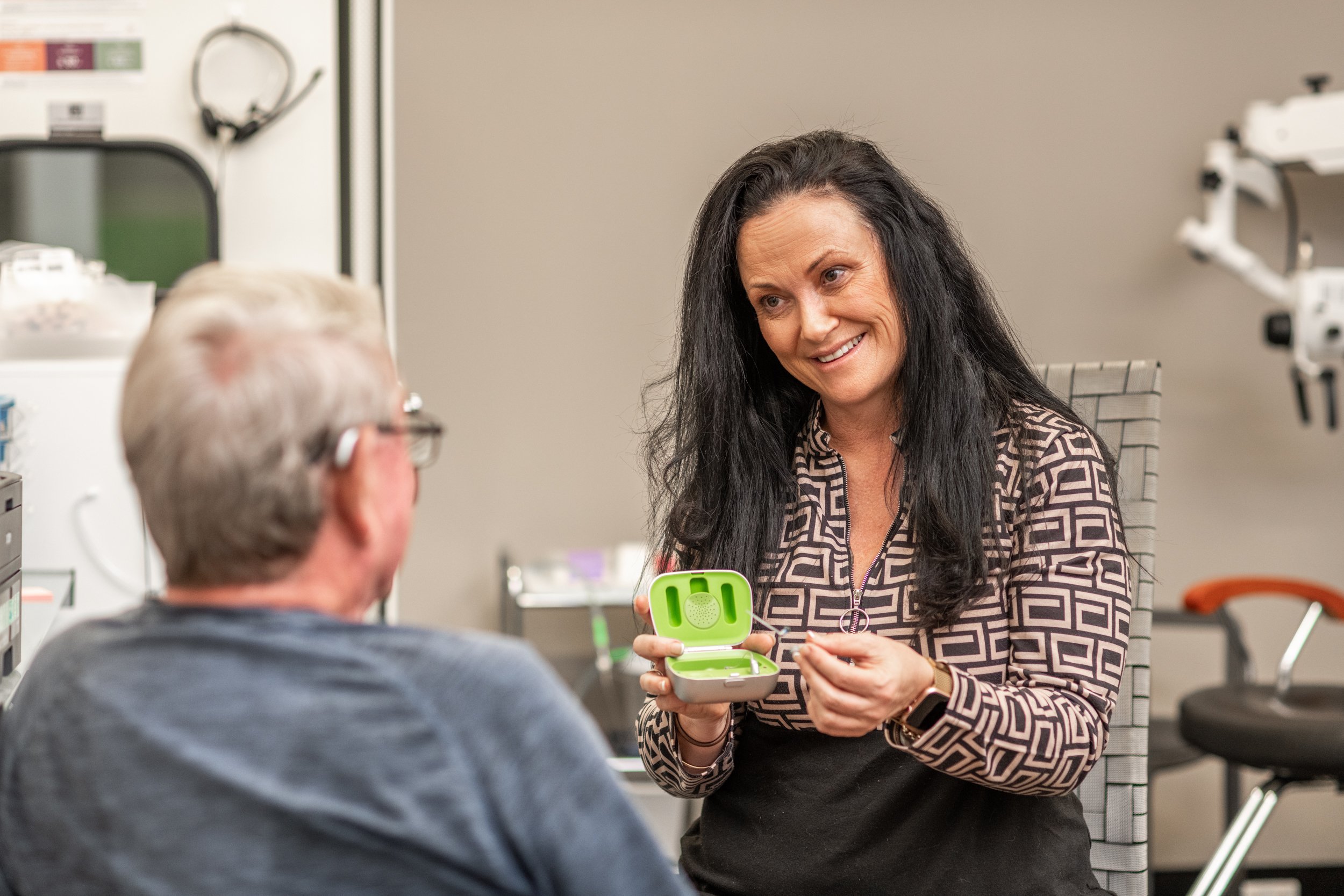Did you know older adults with hearing loss are more likely to develop Dementia?
How can you lower your risk?
Whether or not you have an existing hearing loss, regular hearing checks are essential to monitor any changes in hearing so they can be treated.
Untreated hearing loss is linked to Dementia.
There is growing evidence suggesting that hearing loss and dementia may be linked. Research studies have found that people with hearing loss may have a higher risk of developing dementia, including Alzheimer's disease, than those without hearing loss.
We have all heard the phrase “use it or lose it”. This has been shown to apply in the association between dementia and hearing loss. Our brains are very active during hearing – processing the sound, making out meaning, applying that to our situation and formulating a cogent reply and remember it all for later. For that process to work, our ears and brain have to work together seamlessly.
Recent university research has shown a nearly three times higher rate of dementia among people with moderate to severe hearing loss. If we didn’t hear then we can’t remember and we can’t reply effectively. By not using our communication system effectively, it can stop working well. Permanently.
Can hearing aids reduce the risk of Dementia?
The take-home message appears to be that a hearing test is very important and use of properly fitted and calibrated hearing aids can delay the onset of dementia symptoms. At Shire Hearing we are keenly aware of the importance of good hearing in our overall health and lifestyle. We are dedicated to looking after this important lifeline of communication by providing regular review and optimisation for our hearing aid users. We also appreciate the value of regular hearing checks even for those who feel they are hearing well.
Come and meet our team!
Book an appointment with us or drop by one of our clinics in the Sutherland Shire!
Cronulla
02 9544 4466
Engadine
02 9520 4774


